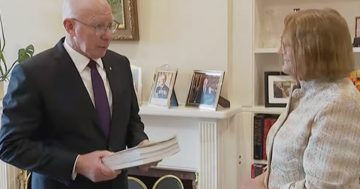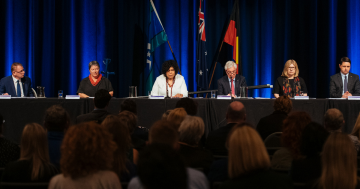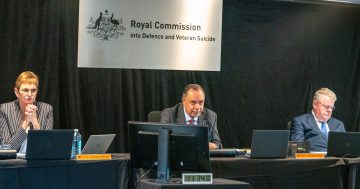
Attorney-General Mark Dreyfus is introducing changes to stat decs and royal commissions. Photo: File.
Statutory declarations have caught up with the modern world, with the Federal Government legislating to make permanent the use of digital execution, electronic signatures and video-link witnessing in place of ink and paper.
Attorney-General Mark Dreyfus has moved to ensure the temporary measures introduced during the COVID-19 pandemic are made permanent, introducing a bill to parliament on Thursday (7 September) to bring Commonwealth stat decs into the digital age.
The bill also enables people to digitally execute a statutory declaration using the online platform myGov and the myGov ID Digital ID.
“Importantly, this bill does not remove the ability for Australians to continue executing statutory declarations through the traditional, paper-based method should they wish to do so,” Mr Dreyfus said.
“All three methods will be an equally valid and legally effective form of Commonwealth statutory declaration.”
He said the Government recognised that any digital option must have strong safeguards that protect against fraud and misuse of personal information.
The legislation includes a range of provisions to ensure transparency and accountability, as well as a requirement for approved online platforms and identity services to demonstrate they comply with privacy laws and have robust fraud and security arrangements.
“The bill also prohibits approved online platforms from retaining copies of statutory declarations, noting that they can hold particularly sensitive personal information,” the Attorney-General said.
“There is also an annual reporting requirement to the parliament on the operation of the online execution platform.
“These important reforms will benefit all Australians seeking a more convenient, and efficient, statutory declaration process – particularly those in rural, remote or regional parts of Australia.”
In a joint statement with the A-G, Finance Minister Katy Gallagher also noted the cost savings to be had by the move.
“Digital statutory declarations could save over $156 million each year, hundreds of thousands of hours and be a productivity winner for the private sector,” the statement said.
“Australians spend an estimated nine million hours each year executing and processing more than 3.8 million statutory declarations.
“Historically, these documents have been strictly paper-based, requiring they be witnessed in person and signed in ink.”
On the same day, Mr Dreyfus also introduced amendments to the Royal Commissions Act that would make it easier for more private sessions to be held over sensitive information.
The Royal Commissions Amendment (Private Sessions) Bill seeks to change the act to widen the delegation of those who can authorise private sessions.
“Currently under the act, only a sole commissioner, the chair of a multi-member royal commission, or another commissioner who is authorised in writing by the chair, may conduct private sessions,” Mr Dreyfus said.
The changes would allow those who can already hear testimony in private sessions to delegate to other senior officials who are qualified to hold such sessions.
They would become assistant commissioners authorised to hold private sessions and would be chosen from officers already assigned to the respective royal commissions.
“The proposed role of an assistant commissioner is solely to hold private sessions, as authorised in writing by the sole commissioner or chair of the royal commission,” the Attorney-General said.
“An assistant commissioner will not be authorised to undertake any other role or to exercise any powers of a commissioner for the royal commission.”
The A-G noted that while private sessions were first established for the Royal Commission into Institutional Responses to Child Sexual Abuse, subsequent royal commissions have been able to utilise private sessions.
This has given rise to the need to widen the delegation powers.
Private sessions of royal commissions are used to provide a less formal setting for individuals to share sensitive information or traumatic experiences.
Private session testimony is not taken under oath, however, and therefore not regarded as official evidence.
Original Article published by Chris Johnson on Riotact.











